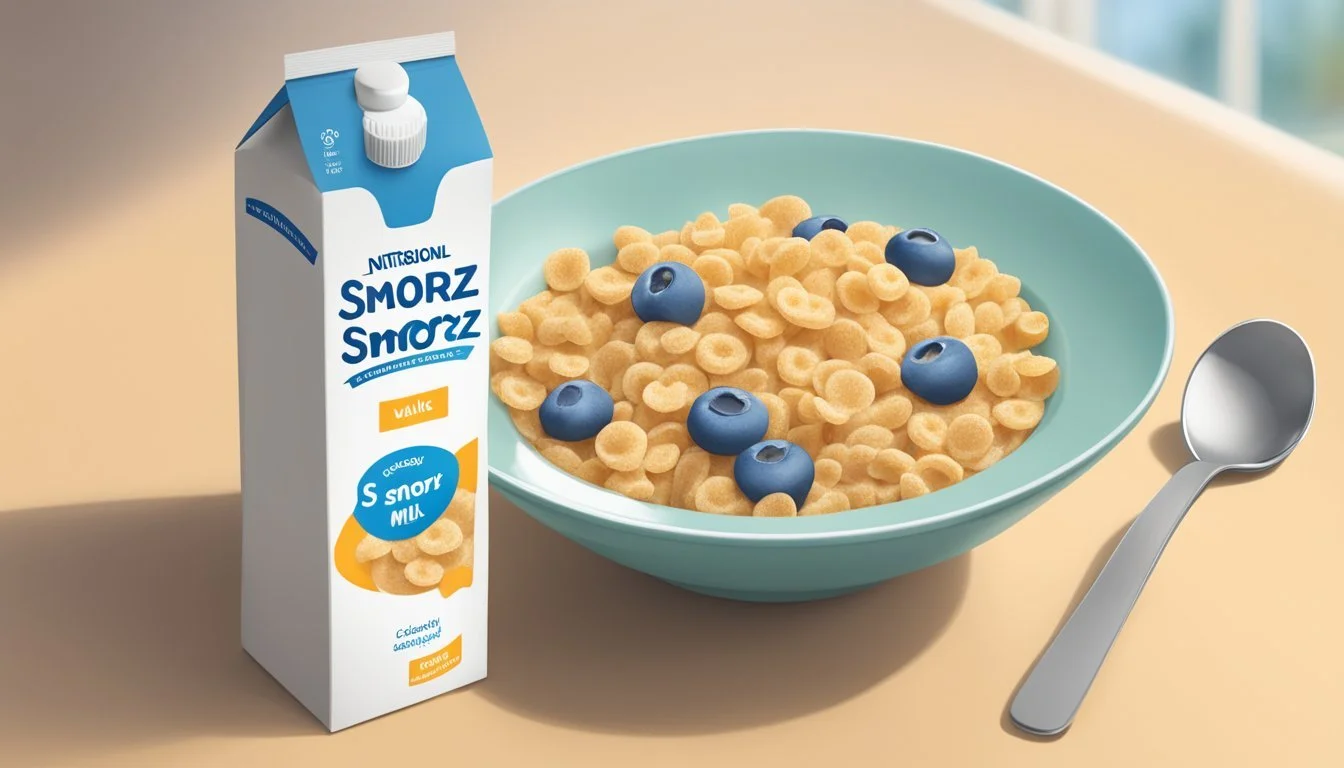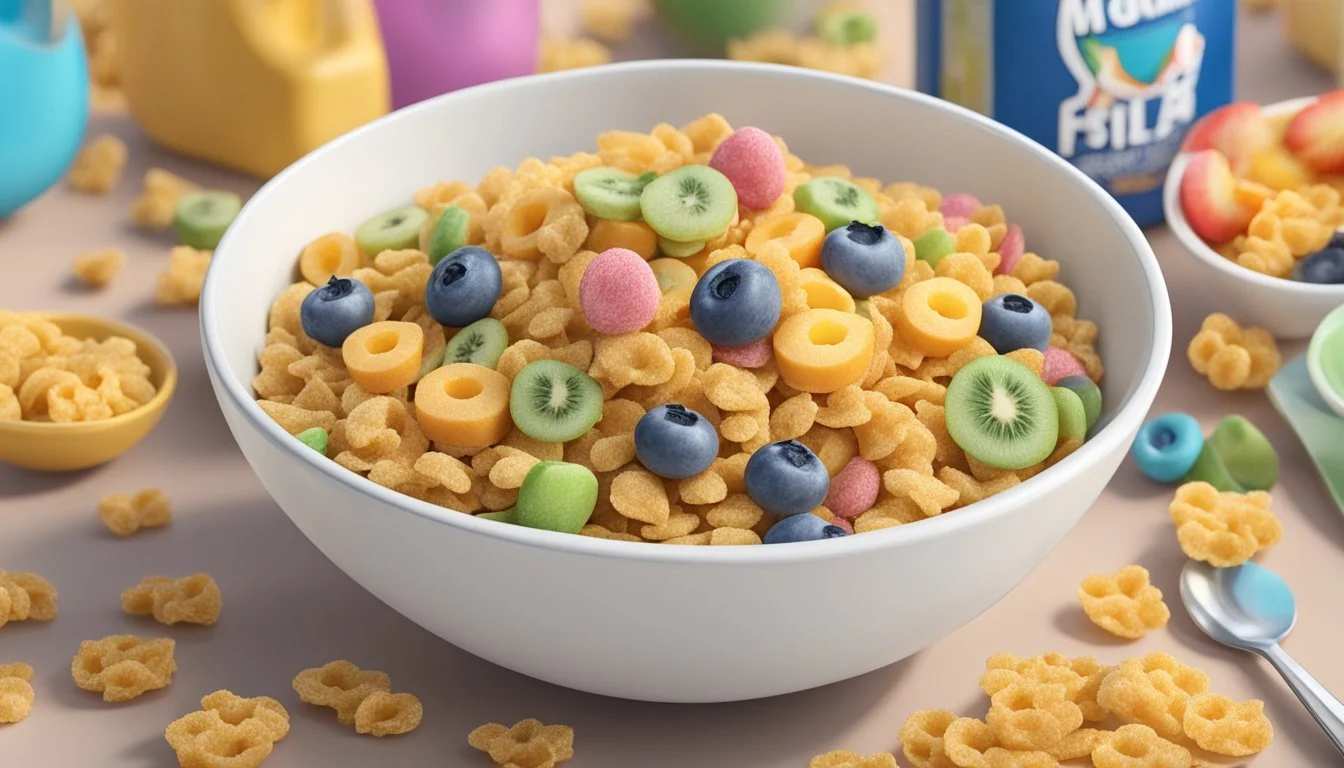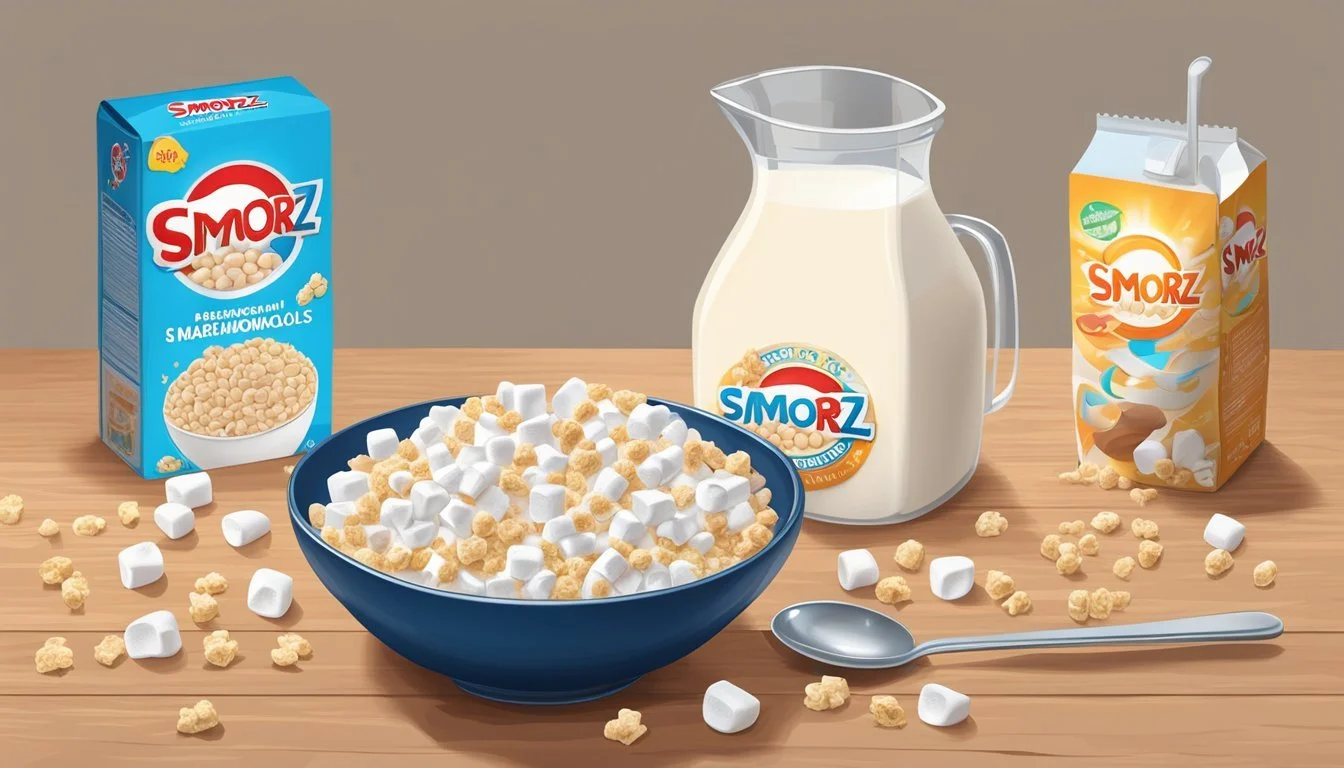Smorz Nutrition Facts & More
Analyzing the Nutritional Profile of This Popular Cereal
Smorz cereal, a popular breakfast option from Kellogg's, combines the classic flavors of s'mores in a convenient bowl. This sweet treat features graham cracker-flavored cereal pieces and marshmallows, creating a unique taste experience for cereal enthusiasts.
A single serving of Smorz cereal contains approximately 120-130 calories, 2-3 grams of fat, and 18 grams of sugar. While it may not be considered a health food, Smorz does offer some nutritional benefits. It provides essential vitamins and minerals, including iron and various B vitamins, which are often added to fortify breakfast cereals.
For those monitoring their sugar intake, it's important to note that Smorz contains added sugars. The American Heart Association recommends limiting added sugar consumption to 25 grams per day for women and 37 grams for men. As with many sweetened cereals, moderation is key when incorporating Smorz into a balanced diet.
Overview of Smorz Cereal
Smorz is a breakfast cereal produced by Kellogg's. It aims to capture the flavors of the classic campfire treat s'mores in cereal form.
The main ingredients include corn flour, sugar, marshmallows, oat flour, and cocoa. Smorz contains a mix of graham cracker-flavored cereal pieces and marshmallows.
A 1-cup (32.8g) serving of Smorz cereal contains:
Calories: 170
Fat: 3.5g
Carbohydrates: 32g
Sugar: 18g
Protein: 2g
Fiber: 1g
Smorz is relatively high in sugar, with 18g per serving. This accounts for a significant portion of the total carbohydrate content.
The cereal provides some vitamins and minerals. It contains iron, calcium, and potassium, as well as vitamins A and C.
Kellogg's has discontinued and reintroduced Smorz multiple times. The most recent relaunch occurred in December 2020, after being off shelves since April 2019.
While Smorz offers a sweet, indulgent breakfast option, its high sugar content and relatively low fiber and protein levels make it less nutritionally balanced compared to some other cereals.
Nutritional Profile
Smorz cereal offers a mix of macronutrients, vitamins, and minerals. Its nutritional composition reflects its sweet, dessert-inspired flavor profile while providing some essential nutrients.
Macronutrients and Calories
A 1-cup (32.8g) serving of Smorz cereal contains 136 calories. The total fat content is 2.4 grams, with 0.4 grams of saturated fat. This represents 4% of the daily value for total fat and 2% for saturated fat.
Carbohydrates make up the majority of the macronutrients in Smorz. The cereal provides 27 grams of total carbs per serving, including 1.5 grams of dietary fiber. Protein content is relatively low at 1.5 grams per serving.
The cereal contains no cholesterol and minimal sodium, with 180 mg per serving.
Vitamins and Minerals
Smorz cereal is fortified with several essential vitamins and minerals. A single serving provides:
Vitamin A: 529.60 mcg
Vitamin C: 21.2 mg
Iron: 6.35 mg
Calcium: 28.00 mg
Potassium: 70 mg
These nutrients contribute to various bodily functions, including immune support, bone health, and oxygen transport.
Sugar Content Analysis
Sugar is a significant component of Smorz cereal's nutritional profile. Each serving contains 17 grams of sugar, which is a considerable amount for a breakfast cereal.
The high sugar content comes from various sources listed in the ingredients, including:
Sugar
Marshmallows (containing sugar, corn syrup, and dextrose)
Fructose
Brown sugar syrup
This sugar content may be a concern for those monitoring their sugar intake or managing blood glucose levels. It's important to consider this factor when incorporating Smorz into a balanced diet.
Health Considerations
Smorz cereal raises important nutritional concerns due to its high sugar content and inclusion of common allergens. Its impact on daily nutritional intake, potential allergen risks, and suitability for various diets merit careful examination.
Impact on Daily Values
Smorz cereal contains 170 calories per 1 1/4 cup serving. This represents about 8.5% of a 2000-calorie daily diet. The cereal is low in fat, with only 2.4 grams per serving.
Sodium content is moderately high at 180 mg per serving, accounting for 7.5% of the recommended daily value. This may be a consideration for those monitoring sodium intake.
Sugar content is particularly high. Each serving contains 18 grams of sugar, which is 36% of the daily value for added sugars based on stricter guidelines. This high sugar content can significantly impact daily sugar limits, especially for children.
Allergen Information
Smorz cereal contains milk and soy ingredients, which are common allergens. These allergens must be clearly labeled on the packaging to alert consumers with sensitivities or allergies.
The cereal may also be produced in facilities that process wheat. This creates a potential risk of cross-contamination for individuals with wheat allergies or celiac disease.
Consumers with allergies should carefully read the ingredient list and allergen warnings before consuming Smorz cereal.
Special Dietary Concerns
Smorz cereal is not suitable for vegan or dairy-free diets due to its milk content. It is also not gluten-free certified, which may be a concern for those with gluten sensitivities.
The high sugar content makes it less suitable for diabetic diets or low-sugar eating plans. Individuals following these diets should be cautious about portion sizes or consider alternative cereals.
Smorz does not provide significant amounts of dietary fiber. This may be a drawback for those seeking to increase their fiber intake through breakfast options.
Comparison to Other Cereals
Smorz cereal has a unique nutritional profile compared to other popular breakfast cereals. It contains 120 calories per serving, which is lower than some supposedly healthier options like Raisin Bran at 188 calories.
Fat content in Smorz is relatively low at 2.4 grams per serving. This places it in the low-fat category for cereals.
Sugar content is a concern with Smorz, as it's higher than many nutritionist-recommended cereals. Healthier alternatives like Kashi 7 Whole Grain Flakes contain only 6 grams of sugar per serving.
Protein and fiber content in Smorz is lower compared to whole grain cereals. Kashi 7 Whole Grain Flakes, for example, offers 6 grams of protein and 6 grams of fiber per serving.
Here's a quick comparison of Smorz with some other cereals:
Cereal Calories Sugar (g) Protein (g) Fiber (g) Smorz 120 High Low Low Raisin Bran 188 17 5 7 Kashi 7 Whole Grain Flakes Not specified 6 6 6
Nutritionists often recommend cereals with higher protein and fiber content for a more balanced breakfast. Smorz falls short in these areas compared to whole grain options.
Understanding Food Labels
Food labels provide essential nutritional information about packaged products. The Nutrition Facts label, regulated by the FDA, offers a standardized format for consumers to make informed choices.
At the top of the label, you'll find the serving size and servings per container. This information is crucial for accurately interpreting the nutritional content.
Calories are displayed prominently, indicating the energy content of one serving. This helps in managing daily calorie intake.
The label lists key nutrients, including total fat, saturated fat, trans fat, cholesterol, sodium, carbohydrates, fiber, sugars, and protein. These values are presented in grams or milligrams.
Daily Values (DVs) are shown as percentages, based on a 2,000-calorie diet. They indicate how much a nutrient contributes to daily nutritional needs.
Here's a quick guide to interpreting Daily Values:
5% DV or less: Low in that nutrient
20% DV or more: High in that nutrient
Pay attention to serving sizes when comparing products. Labels make it easier to choose foods that align with specific dietary goals or restrictions.
Remember, the information on food labels is based on average values and may vary slightly from the actual content of the product.
Cereal Preparation and Serving Suggestions
Preparing a bowl of Smorz cereal is quick and easy. Pour approximately 1 1/4 cups (41g) of Smorz into a bowl. This is the recommended serving size.
Add 3/4 cup of cold milk to the cereal. Whole, low-fat, or skim milk can be used based on personal preference. For a dairy-free option, try almond or soy milk.
Allow the cereal to sit for 30 seconds before eating. This softens the cereal slightly while maintaining some crunch.
For added nutrition, top Smorz with sliced bananas or strawberries. This introduces fresh fruit to the meal.
Smorz can also be enjoyed as a dry snack. Pour a serving into a small container for on-the-go munching.
For a twist, use Smorz as an ice cream topping. Sprinkle a handful over vanilla ice cream for a s'mores-inspired dessert.
Remember that a single serving of Smorz contains about 170 calories when prepared with 3/4 cup of skim milk. Adjust portion sizes as needed to fit dietary requirements.







